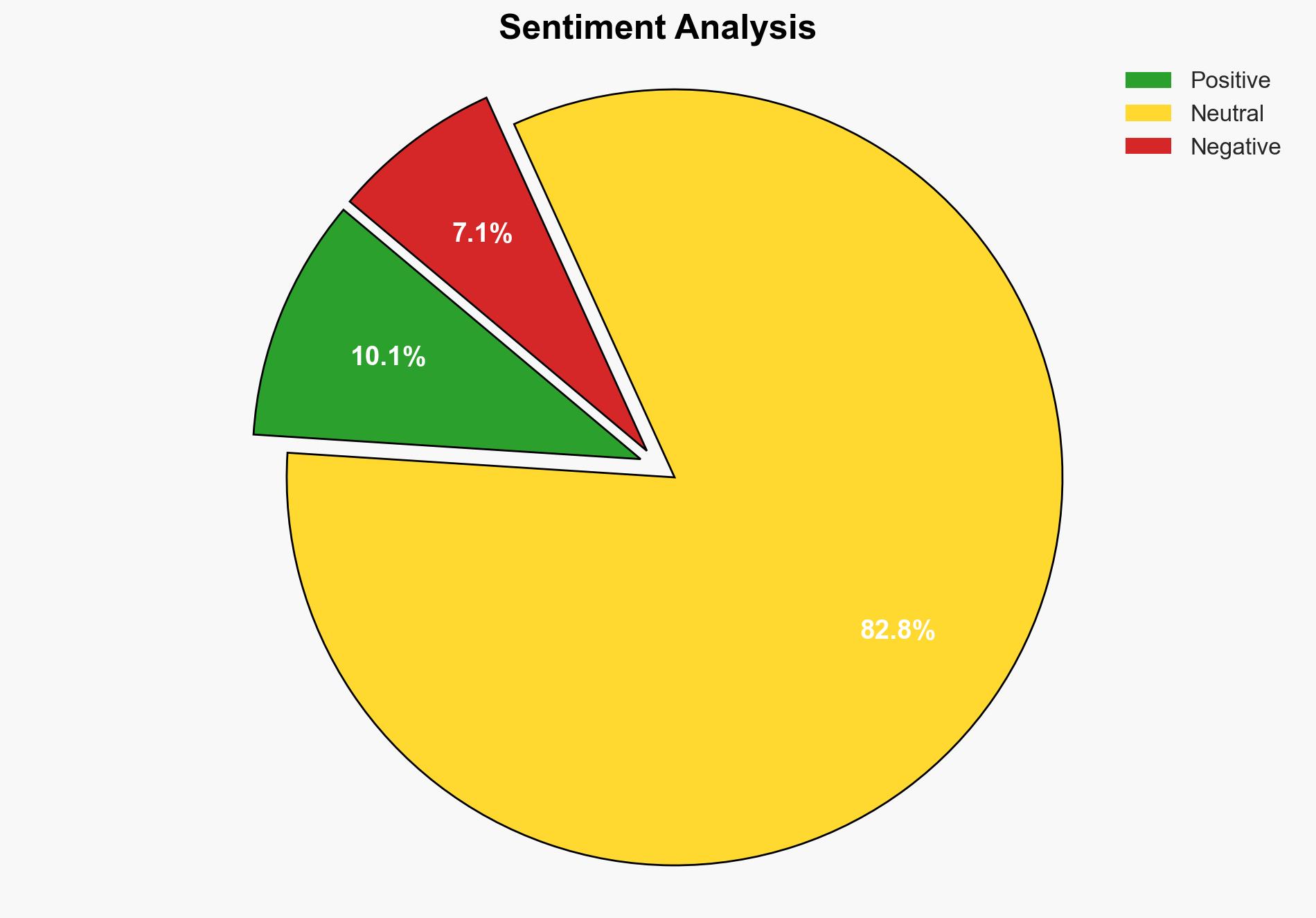Automakers brace for higher costs as steel and aluminum tariffs kick in – NPR
Published on: 2025-03-12
Intelligence Report: Automakers brace for higher costs as steel and aluminum tariffs kick in – NPR
1. BLUF (Bottom Line Up Front)
The imposition of tariffs on steel and aluminum by the U.S. administration is expected to significantly increase costs for automakers, impacting their supply chains and profitability. These tariffs, justified on national security grounds, have led to increased tensions with Canada and Mexico. Automakers face challenges in absorbing these costs or passing them on to consumers, potentially affecting the global competitiveness of the U.S. auto industry.
2. Detailed Analysis
The following structured analytic techniques have been applied for this analysis:
General Analysis
The tariffs on steel and aluminum are set to increase production costs for automakers, who consume large quantities of these metals. The tariffs have been partially rolled back for Canada and Mexico, but the overall impact remains significant. Automakers are struggling with the uncertainty of sourcing materials domestically or paying higher import costs. The lack of immediate domestic production capacity exacerbates the issue. The situation is further complicated by the potential reimposition of tariffs on cars and car parts, disrupting the integrated North American supply chain.
3. Implications and Strategic Risks
The tariffs pose several risks, including:
- Increased production costs leading to higher vehicle prices, potentially reducing consumer demand.
- Disruption of the North American supply chain, affecting just-in-time manufacturing processes.
- Potential retaliatory measures from Canada and Mexico, impacting broader trade relations.
- Long-term risk of ceding market share in the electric vehicle sector to international competitors, particularly China.
4. Recommendations and Outlook
Recommendations:
- Engage in diplomatic negotiations to seek exemptions or reductions in tariffs with key trading partners.
- Invest in domestic production capabilities to reduce reliance on imported metals.
- Enhance supply chain resilience through diversification and strategic partnerships.
Outlook:
Best-case scenario: Successful negotiations lead to reduced tariffs, stabilizing costs and maintaining competitiveness.
Worst-case scenario: Prolonged trade tensions lead to sustained high costs and loss of market share to international competitors.
Most likely outcome: Gradual adaptation to new cost structures with moderate impact on consumer prices and market dynamics.
5. Key Individuals and Entities
The report mentions significant individuals and organizations, including:
- Jim Farley
- Ann Marie Uetz
- Iacob Koch-Weser
- Jamie Barsimantov





